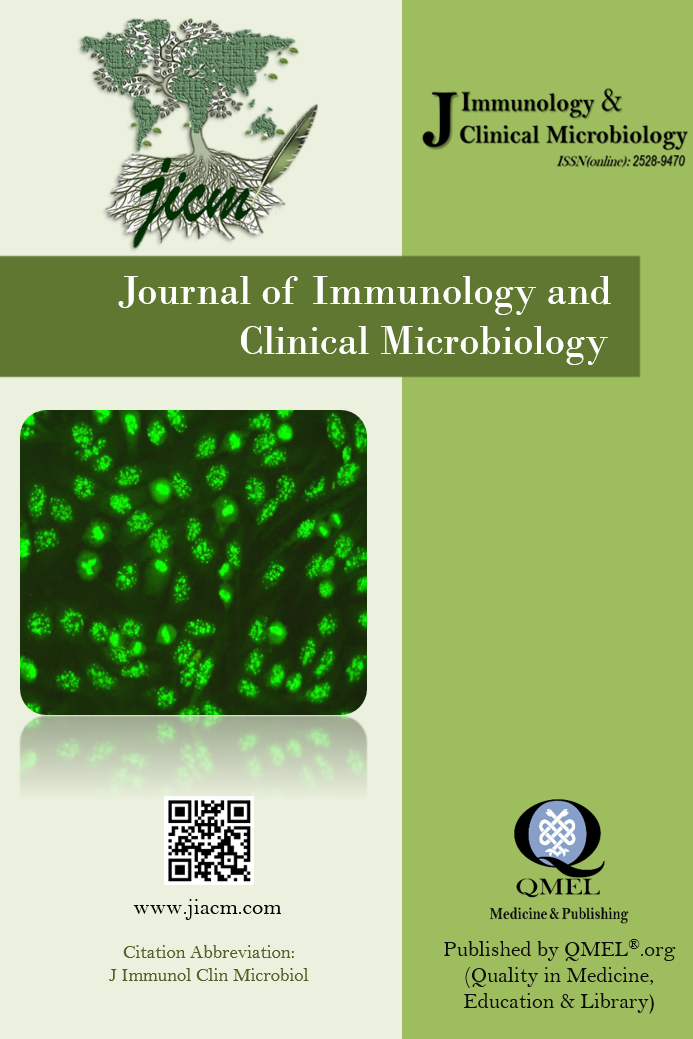Microbiota: A Potential Therapy for Autism .
Microbiota: A Potential Therapy for Autism .
Gastrointestinal symptoms are a common problem in patients with autism spectrum disorder (ASD), but the underlying mechanisms are unknown. Autistic children often suffer gastrointestinal (GI) problems that correlate with ASD severity. Several previous studies have reported abnormal gut bacteria in children with Autism disease. The gut microbiota-Autism connection has been tested in a mouse model of Autism, where the microbiome was mechanistically linked to abnormal metabolites and behavior. Similarly, a study of children with Autism spectrum disorder found that oral non-absorbable antibiotic treatment improved GI and ASD symptoms, albeit temporarily.
In this review, Autism and their therapy with gut microbiota are summarized. These studies are among the most promising areas of research for human health; however, further studies are needed before clinical practice.
Keywords:
Autism, Microbiota, Gut, Intestine, probiotics fecal microbiota transplantation (FMT),
___
- 1. Tomova A, Husarova V, Lakatosova S, Bakos J, Vlkova B, Babinska K, et al. Gastrointestinal microbiota in children with autism in slovakia. Physiology & Behavior 2015;138:179-87. 2. De Angelis M, Piccolo M, Vannini L, Siragusa S, De Giacomo A, Serrazzanetti D, et al. Fecal microbiota and metabolome of children with autism and pervasive developmental disorder not otherwise specified. Plos One 2013; 8(10):1-18. 3. Makowska M, Kasarello K, Bialy M, Sajdel- Sulkowska EM. Autism: “leaky gut”, prematurity and lactoferrin. Austin J Autism & Relat Disabil 2016;2(3):1-8. 4. Lı Q, Zhou J. The mıcrobıota–gut–braın axis and ıts potentıal therapeutıc role ın autism spectrum dısorder. Neuroscience 2016;324:131-9. 5. Park A, Collıns J, Blennerhassett P, Ghıa J, Verdu E, Bercık P, et al. Altered colonic function and microbiota profile in a mouse model of chronic depression. Neurogastroenterol Motil 2013;25(73):733-e575.6. Goulet O. Potential role of the intestinal microbiota in programming health and disease.Nutrition Reviews 2015;73(1):32-40. 7 Clarke G, Stilling R, Kennedy R, Stanton C, Cryan J, Dinan T. Minireview: gut microbiota: the neglected endocrine organ. Mol Endocrinol 014;28(8):1221-38. 8. Li W., Dowd S. E., Scurlock B., Acosta-Martinez V., Lyte M. (2009a). Memory and learning behavior in mice is temporally associated with diet-induced alterations in gut bacteria. Physiol. Behav. 96, 557–567. 10.1016/j.physbeh.2008.12.004 [PubMed] [Cross Ref] 9. . Yano J, Yu K, Donaldson G, Shastri G, Ann P, Ma L, et al. Indigenous bacteria from the gut microbiota regulate host serotonin biosynthesis. Cell 2015;161(2):264-76. 10. Park A, Collıns J, Blennerhassett P, Ghıa J, Verdu E, Bercık P, et al. Altered colonic function and microbiota profile in a mouse model of chronic depression. Neurogastroenterol Motil 2013;25(73):733-e575. 11. Bravo J, Forsytheb P, Chew M, Escaravageb E, Savignaca H, Dinana T, et al. Ingestion of lactobacillus strain regulates emotional behavior and central gaba receptor expression in a mouse via the vagus nerve. Pnas 2011;108(38):16050-5. 12. Goulet O. Potential role of the intestinal microbiota in programming health and disease. Nutrition Reviews 2015;73(1):32-40. 13 Goffredo M, Mass K, Parks E, Wagner D, Mcclure E, Graf J, et al. Role of gut microbiota and short chain fatty acids in modulating energy harvest and fat partitioning in youth. J Clin Endocrinol Metab 2016;101(11):4367-76. 14. Ding H, Taur Y, Walkup J. Gut microbiota and autism: key concepts and findings. J Autism Dev Disord, 2017;47(2):480-9. 15. Sandler R, Finegold S, Bolte E Buchanan C, Maxwell A, Vaisanen M, Nelson M, Wexler H. Short-term benefit from oral vancomycin treatment of regressive-onset autism. Journal Of Child Neurology 2000;15(7):429-35. 16. Kang D, Park J, Ilhan Z, Wallstrom G, Labaer J, Adams J, et al. Reduced ıncidence of Prevotella and other fermenters in ıntestinal microflora of autistic children. Plos One 2013;8(7):1-14. 17. Palego L, Betti L, Giannaccini G. Sulfur metabolism and sulfur-containing amino acids derivatives – II: autism spectrum disorders, schizophrenia and fibromyalgia. Biochem Pharmacol (Los Angel) 2015;4(1):1-7. 18. Good P. Did acetaminophen provoke the autism epidemic?. Alternative Medicine Review 2009;14(4): 364-72. 19. Geie D, Geier M. A clinical and laboratory evaluation of methionine cycle-transsulfuration and androgen pathway markers in children with autistic disorders. Horm Res 2006;66(4):182-8. 20. Bresnahan M, Hornig M, Schultz A, Gunnes N, Hirtz D, Lie K, et al. Association of maternal report of ınfant and toddler gastrointestinal symptoms with autism. Jama Psychiatry 2015;72(5):466-74. 21. Frye R, Rose S, Slattery J, Macfabe D. Gastrointestinal dysfunction in autism spectrum disorder: the role of the mitochondria and the enteric microbiome. Microbial Ecology İn Health & Disease 2015;26:1-17. 22. Hill A, Zuckerman K, Fombonne E. Obesity and autism. Pedıatrıcs 2015;136(6):1-11. 23. De Angelis M, Francavilla R, Piccolo M, De Giacomo A, Gobbetti M. Autism spectrum disorders and intestinal microbiota. Gut Microbes 2015;6(3):207-13.
- Yayın Aralığı: Yılda 4 Sayı
- Başlangıç: 2016
- Yayıncı: Erkan YULA
Sayıdaki Diğer Makaleler
Testing for Lyme borreliosis: could serology tell more?
András ZÓKA, Márton GÖNCZY, Veronika BARBAİ, Radka NİKOLOVA, Eszter UJHELYİ, Zsuzsa KİENLE, Gabriella BEKŐ
Hypersensitivity pneumonitis following intravesical BCG immunotherapy
Adem SANCI, Eralp KUBİLAY, Efe OĞUZ, Başak GÜLPINAR
Samsun Bölgesindeki Çocuk ve Yetişkinlerde Bruselloz Olgularının Seroprevalansı
